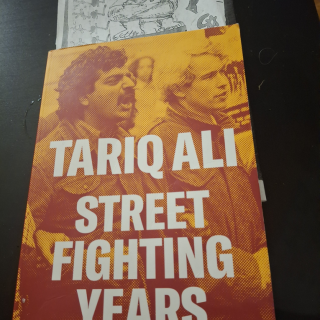When President John F. Kennedy was assassinated on November 22, 1963, his brother, Robert Kennedy, the attorney general, lost more than most. For much of his adult life he had sublimated himself to his brother’s wishes. They talked several times a day in a kind of staccato shorthand that only each understood. Robert Kennedy had managed his brother’s U. S. Senate campaign in 1952 and his presidential campaign in 1960. In terms of a professional life, Robert’s wants and wishes were those of the President. RFK’s power was the president’s power. Personal and professional grief collided, and almost overwhelmed him. But concerned for his brother’s legacy, and contemptuous of his successor, Vice President Lyndon B. Johnson, he entered the 1964 race for the United States Senate for the state of New York.
The race was no walk in the park; he faced more opposition from Democratic apparatchiks than he thought he would. There were also those who labeled him a carpetbagger; in spite of the luxury apartment in the Carlyle Hotel that was owned by the Kennedy family, he had not lived in New York since he was a child. Still he secured the party’s nomination, and with help from his nemesis, President Lyndon B. Johnson—it must have galled both of them to work together—he beat the incumbent Kenneth Keating, with fifty-three percent of the vote, and took his place in the United States Senate.
Kennedy was not fond of the Senate as an institution. He hated its slow pace, the clubby atmosphere, and the exaggerated deference based solely on seniority rather than hard work or the ability to make laws and policies. Its archaic rules and norms made him itch. The one saving grace was that his younger brother, Edward (Ted) Kennedy, was also in the Senate. For the first time in his life, Ted Kennedy outranked his older brother, who was ninety-ninth of one hundred senators in terms of seniority.
Kennedy had secured a seat on the Senate Subcommittee on Employment, Manpower and Poverty. One of its charges was to look into the effectiveness of the Economic Opportunity Act of 1964, (EOA) which was the foundation of the Johnson administration’s War on Poverty. On March 17, 1967, RFK, the junior Senator from New York, was sitting in the Caucus Room of the Senate office building listening intently as a young lawyer named Marian Wright testified about the deplorable conditions amongst black people living in the Mississippi Delta. Born and reared in South Carolina, Wright knew discrimination first hand. She was the first black woman to pass the Mississippi bar exam, and as an attorney for the National Association for the Advancement of Colored People (NAACP), Wright was assigned to work in Mississippi.
In 1967 blacks in Mississippi were suffering from the impact of further mechanization of agricultural work, which resulted in widespread unemployment. Poverty among blacks in the Mississippi Delta was pervasive and intergenerational poverty. Prior to the passage of the EOA, the poor in many states had received free commodities from the national government. Those commodities were replaced by food stamps which had to be purchased by the poor. Mississippi politicians ensured that subsidies from the federal government went to the wealthiest people in the state, and for decades actively blocked federal dollars that were to be spent on food, education and medical care for the poor. Furthermore, the OEA’s mandate that the poor should participate in developing anti-poverty efforts was especially galling to segregationists in the state, and they worked double time to ensure that it didn’t happen. White officials harassed and blocked African Americans and their white allies at every turn. The cost of being a change agent in the state included psychological harassment, physical violence, and death.
What Wright and other freedom workers encountered in Mississippi was virulent racism and the depraved indifference of whites as it related to African Americans in the state. Their callous disregard for human, not just civil rights, ensured that it was a rare black person who found economic success and social freedom in Mississippi. She described a state in which thousands of black Mississippians had no income—zero, zip, nada, zilch. The Mississippi Delta, the poorest area of the poorest state, was also ruled by a powerful troika of uber racists: Governor Paul B. Johnson, Jr., United States Senator James O. Eastland, and Congressman Jamie Whitten. All of them were Democrats and all vehemently denied the testimony of Marian Wright. Johnson told a New Orleans reporter “All the Negroes I’ve seen around here are so fat they shine.” Kennedy, by then a father of ten children, decided the committee would hold its next hearing in the Delta so they could see firsthand what was happening.
RFK, Marian Wright, and RFK’s assistant, Peter Edelman, followed by the CBS news reporter Daniel Schoor, visited three counties in Mississippi. It was one thing to listen to Wright’s testimony, but quite another to see it in the flesh. The group saw children who lived on a diet of gravy, beans, and rice, and often were fed no more than once a day; adults frequently went hungry so their children did not. They lived in shacks and on streets with unpaved roads. Many of the homes visited by Wright and Kennedy lacked modern conveniences such as running water and indoor plumbing. Most of the children did not attend school because they did not have clothes or shoes.
Kennedy returned from the trip with jumbled emotions. He was furious at so much want in a land of plenty; flabbergasted by the scope of the problem; and exasperated by what he saw as political posturing by racist Mississippi politicians. He telephoned wealthy and influential friends to enlist their help. He testified before other committees of the Senate, and his public speeches began referencing poverty as one of the biggest problems in America. Until his death fifteen months after the trip, eliminating poverty was at the top of his political agenda. Moreover, those who knew Kennedy the best agreed that what he had seen on the fateful trip in part animated his decision to run for the presidency in 1968.
Meacham did what must have been yeoman’s work and found three children who had spoken to RFK on his trip. Two of the three still struggle fifty years later. Poor health, the lack of a good, solid education, and continuing racism continue to make black life in Mississippi precarious.
A delightful back story in Delta Epiphany is the meeting and courtship of Marian Wright and Peter Edelman. Edelman was a close assistant to RFK, and even after the fact-finding mission, he found reasons to call or visit Mississippi. Wright and Edelman were married a month after Kennedy’s assassination, and celebrated their fiftieth wedding anniversary last year. They are both still deeply involved in issues regarding policy and race—he as a law school professor and author, she as the founder in 1973 of the Children’s Defense Fund, a non-profit agency which advocates on behalf of America’s children. She was recently named President Emerita in the Office of the Founder



